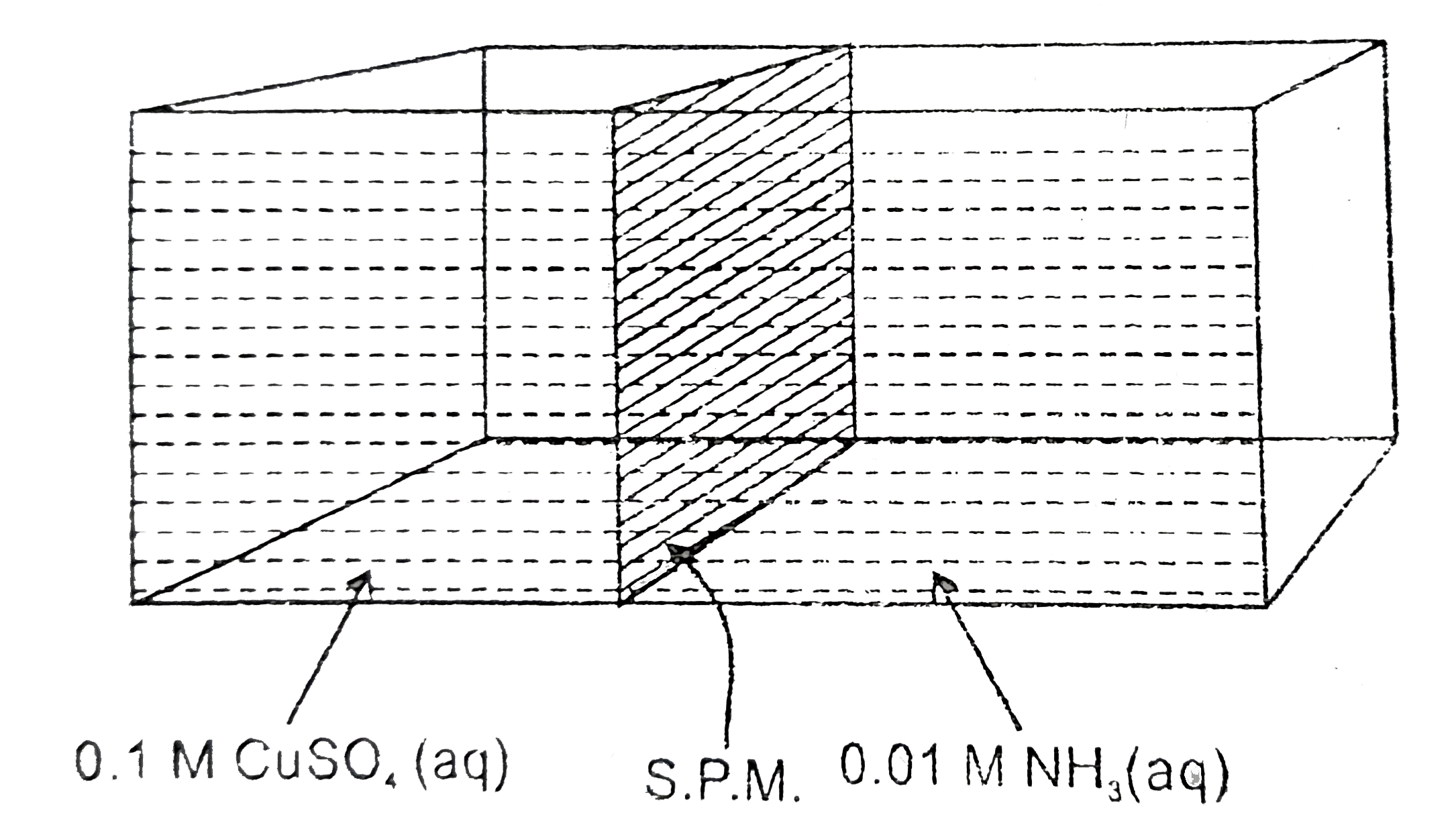Ammonia forms the complex [Cu(NH3)4]2+ with copper ion in alkaline solution but not in acidic solution. This is due to the reason that :
in alkaline solution insoluble Cu(OH)2 is precipitated which is soluble in excess of any alkali
Cu(OH)2 is amphoteric
in acidic solution hydration protects Cu2+ ion
in acidic solution, proton coordinates with NH3 forming NH+4 ion and NH3 is not available
The correct Answer is:D
To solve the question regarding why ammonia forms the complex (Cu(NH3)4)2+ with copper ion in alkaline solution but not in acidic solution, we can break it down into clear steps:
1. Understanding the Reaction:
- In alkaline conditions, copper ions (Cu2+) react with ammonia (NH3) to form the complex (Cu(NH3)4)2+.
- In acidic conditions, the presence of protons (H+) affects the reaction.
2. Reaction in Alkaline Medium:
- In alkaline medium, ammonia acts as a ligand and donates its lone pair of electrons to the copper ion.
- The reaction can be represented as:
Cu2++4NH3→(Cu(NH3)4)2+
- Here, NH3 coordinates with Cu2+ to form the complex.
3. Reaction in Acidic Medium:
- In acidic medium, the protons (H+) react with ammonia.
- The reaction can be represented as:
NH3+H+→NH+4
- This means that ammonia is converted into ammonium ion (NH+4), which cannot act as a ligand to form the complex.
4. Conclusion:
- The formation of the complex (Cu(NH3)4)2+ is not possible in acidic solution because ammonia is protonated to form NH+4, thus it is no longer available to coordinate with the copper ion.
5. Final Answer:
- The reason why ammonia forms the complex (Cu(NH3)4)2+ in alkaline solution but not in acidic solution is that in acidic conditions, ammonia is converted into ammonium ion (NH+4), which cannot coordinate with copper ions.
- In alkaline conditions, copper ions (Cu2+) react with ammonia (NH3) to form the complex (Cu(NH3)4)2+.
- In acidic conditions, the presence of protons (H+) affects the reaction.
- In alkaline medium, ammonia acts as a ligand and donates its lone pair of electrons to the copper ion.
- The reaction can be represented as:
Cu2++4NH3→(Cu(NH3)4)2+
- Here, NH3 coordinates with Cu2+ to form the complex.
- In acidic medium, the protons (H+) react with ammonia.
- The reaction can be represented as:
NH3+H+→NH+4
- This means that ammonia is converted into ammonium ion (NH+4), which cannot act as a ligand to form the complex.
- The formation of the complex (Cu(NH3)4)2+ is not possible in acidic solution because ammonia is protonated to form NH+4, thus it is no longer available to coordinate with the copper ion.
- The reason why ammonia forms the complex (Cu(NH3)4)2+ in alkaline solution but not in acidic solution is that in acidic conditions, ammonia is converted into ammonium ion (NH+4), which cannot coordinate with copper ions.
Similar Questions
Ammonia forms the complex [Cu(NH3)4]2+ with copper ions in alkaline solution but not in acid solution. The reasons for it is:
View SolutionAmmonia form the complex ion[Cu(NH3)4]2+ with copper ions in the alkaline solution but not In acidic solution.What is the statement-2 for it?
View SolutionMagnetic moment of [Cu(NH3)4]2+ ion is
View SolutionWhy is an aqueous solution of NH4Cl acidic ?
View SolutionHow many ions are produced from the complex, [Co(NH3)6]CI2 in solution ?
View SolutionIn which solution side complex [Cu(MH3)4]2+ will form and deep blue colour will obtain.

View SolutionNH+4 ion in an aqueous solution will behave as :
View SolutionCalculate the EAN of copper in [Cu(NH3)4]2+
View SolutionIn solution, the complex, [Pt(NH3)6]Cl4 gives
View SolutionIn neutral and faintly alkaline solutions, permanganate ion oxidises thiosulphate ions to form
View Solution
